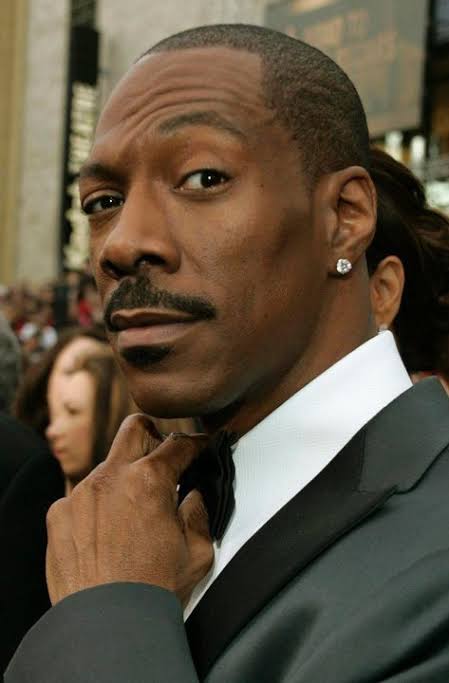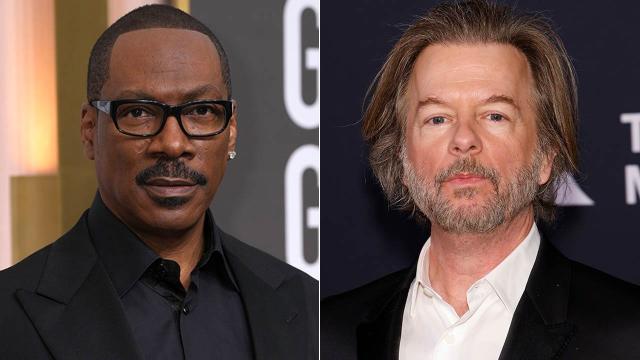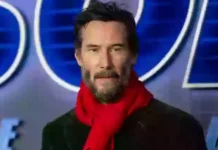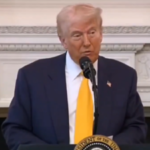The 63-year-old actor and comedian reflected on the “cheap shots” that he felt he had taken over the years, especially from the media during the early years of his career.
Back in the old days, they used to be relentless on me, and a lot of it was racist stuff. It was the ’80s and just a whole different world,” Murphy said.
Murphy then pointed to “when David Spade said that s— about my career on ‘SNL,” referring to a joke that Spade, now 59, made during a “Hollywood Minute” sketch on a December 1995 episode of the show.who rose to fame starring on “SNL” from 1980 to 1984 and was credited with saving the show from cancelation at one point, was stung that the dig at his career came from an “SNL” cast member.
Eddie Murphy said he’s been the target of “cheap shots” over the years — including a “racist” joke that David Spade told on NBC’s “Saturday Night Live,” where Murphy had once been a cast member.
Murphy, in an interview published by the New York Times, said Spade’s joke on “SNL” about his supposedly failing career came after Murphy’s 1995 horror spoof “Vampire in Brooklyn” had flopped at the box office. The hurtful joke was part of Spade’s “Hollywood Minute” sketch from December of that year on the late-night show, in which — after a photo of Murphy popped up on the screen — Spade said, “Look children, it’s a falling star. Make a wish.

It was like: ‘Yo, it’s in-house! I’m one of the family, and you’re fucking with me like that?’ It hurt my feelings like that,” Murphy told the Times.
Murphy said he thought Spade’s barb was “a cheap shot” and “racist.”
“This is ‘Saturday Night Live.’ I’m the biggest thing that ever came off that show,” he said. “The show would have been off the air if I didn’t go back on the show, and now you got somebody from the cast making a crack about my career? And I know that he can’t just say that. A joke has to go through these channels. So the producers thought it was OK to say that. And all the people that have been on that show, you’ve never heard nobody make no joke about anybody’s career. Most people that get off that show, they don’t go on and have these amazing careers. It was personal. It was like, ‘Yo, how could you do that?’ My career? Really? A joke about my career? So I thought that was a cheap shot. And it was kind of, I thought — I felt it was racist.”
After Spade’s roast, Murphy didn’t return to “SNL” for 30 years. He appeared in the show’s 40th anniversary special in 2015 and returned as a host in 2019.
“In the long run, it’s all good,” Murphy told the Times. “Worked out great. I’m cool with David Spade. Cool with Lorne Michaels. I went back to ‘SNL.’ I’m cool with everybody. It’s all love.”
Variety has reached out to Spade’s reps for comment. Spade, in his 2015 memoir “Almost Interesting,” discussed Murphy’s angry reaction to the joke. Spade recalled getting a call from Murphy after the sketch and feeling horrible about his “stupid joke.” “I’ve come to see Eddie’s point on this one,” Spade wrote in the book. “Everybody in showbiz wants people to like them. That’s how you get fans. But when you get reamed in a sketch or online or however, that shit staaaangs. And it can add up quickly.”
In the Times interview, Murphy also recalled the press being “relentless on me, and a lot of it was racist stuff” in the 1980s.
“Just think about it: Ronald Reagan was the president, and it was that America. You would do interviews, and you’re like: ‘I didn’t say that. I don’t talk that way,’” Murphy said. “They would be writing it in this weird ghetto — I used to have weird [expletive] that would go on. Then I got really popular, and there was this negative backlash that comes with it. It’s like, I was the only one out there. I’m this young, rich, Black one. Everybody wasn’t happy about that in 1983. Even Black folks. You’d get cheap shots from your people.”
Murphy will next be seen in “Beverly Hills Cop: Axel F,” set to stream worldwide on Netflix starting July 3. Asked why he wanted to return to the franchise, Murphy said he had been trying to develop another “Beverly Hills Cop” film since 1996; he said he thought the 1994 sequel didn’t “come out good.”
“There’s been 10 different scripts and a bunch of different producers, and we just tried for years and years, and it wouldn’t come together until we got Jerry [Bruckheimer] back involved, the original producer,” Murphy told the Times. “Jerry, he understood it the most because it’s his movie, and it all came together.”
















